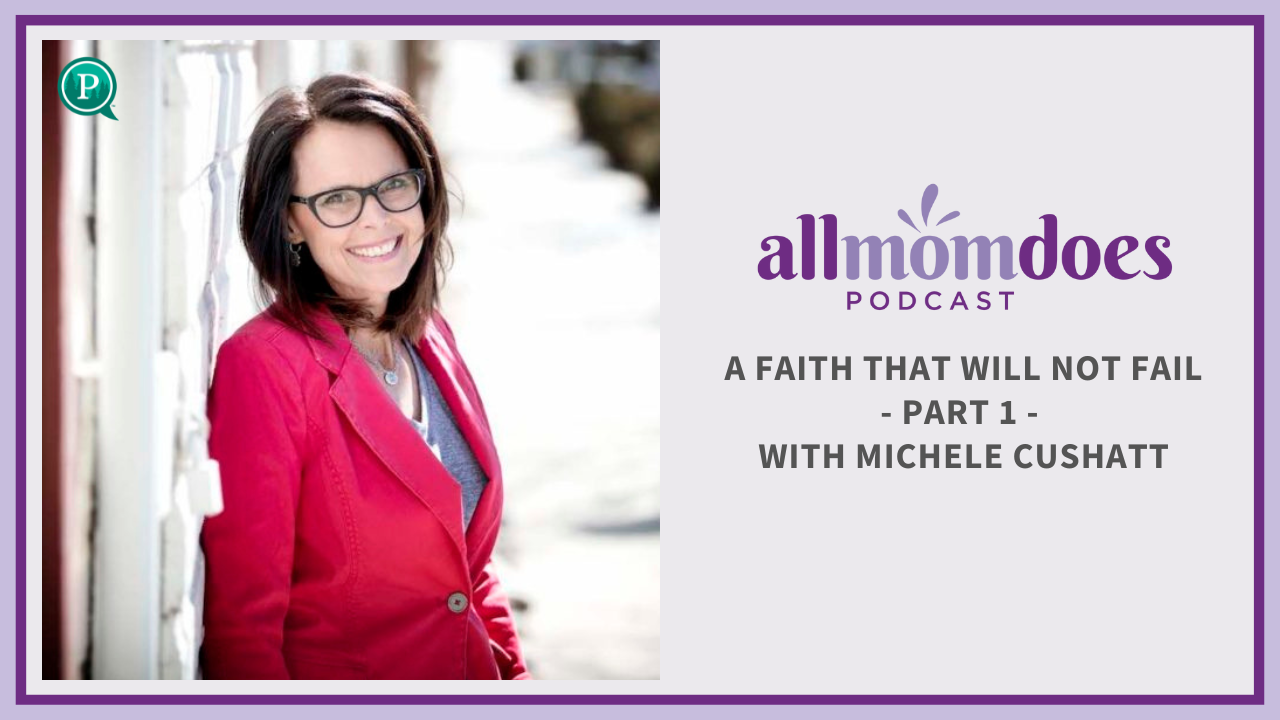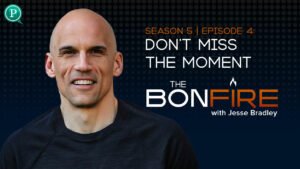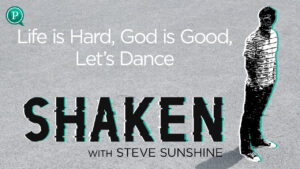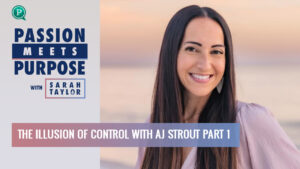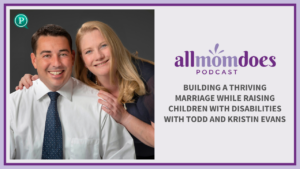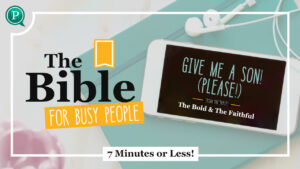An unexpected diagnosis and treatment made her wonder if she would be able to continue her career as a communicator and consultant. Michele Cushatt joins AllMomDoes host Julie Lyles Carr for part 1 of a two part interview, unpacking the experience of becoming differently-abled at the peak of her career and mothering, and what she’s learned about faith as a result.
Show Notes:
Find Julie: Online | Instagram | Facebook | Twitter | Pinterest
AllMomDoes: Instagram | Facebook | Twitter
Transcription:
Purposely your life, God’s purpose. Listen at onpurposely.com.
Julie [00:01:59] You are getting the Ph.D.
Michele [00:02:01] And adventure right now. Let’s see. I’m a writer. I’ve written four books. My most recent coming out right now. I travel and speak internationally and I’m also an executive coach. I work a lot with leaders, CEOs, executives, especially leaders of faith, helping them to more fully embody their leadership in their environments to be able to create things, impact their culture, develop teams, things like that. So that’s the quick background and like the the boring stuff about my life or the daily stuff about my life. And then I have all kinds of other experiences that I’m sure we’ll unpack today.
Julie [00:02:43] Yeah, You have had a full, full biography, my friend. You really have.
Michele [00:02:48] I wasn’t aiming to have a really good resume, but somehow, I ended up.
Julie [00:02:53] But you got there. You got there. You know, Michele, I first became aware of you with a lot of your work with Michael Hyatt in the leadership and business space and then ultimately realized that you were this person of faith who also had these really profound and beautiful ways of expressing your journey and talking about the things that you were learning. How has that been spanning? Because I do a little bit of this myself in my work as a ghostwriter. I also do a lot of corporate work, and it’s always interesting to me kind of living in these two worlds. It doesn’t necessarily have to be completely disparate, but it is a weird kind of wardrobe change back and forth. So how has that been for you? Did you feel like you started in the faith lane and kind of drifted toward business or was it mainly business and you went into the faith line? Like, what did all that look like? And how in today’s world do you show yourself wholly in that way? And sometimes arenas that may not understand the faith thing?
Michele [00:03:49] Yeah, totally. Well, it’s hard to know what came first other than the fact that I was raised in a Christian household. So, faith has always been part of my story. It was I became a Christian when I was about seven years old. I still remember it like yesterday. I wanted to follow Jesus with my whole heart. So that’s been a part of my my story. From day one. At 16,15-16, I made a decision to do full time Christian service, whatever that looked like it could be in the marketplace. Didn’t have to be at that time. I thought it would be kind of a missionary kind of work. And then I got into my adulthood and through a series of really unfortunate circumstances, I was married, divorced, ended up a single mom unexpectedly in my late twenties. And that’s a whole story that is for another day. But the result of that meant I had to reinvent myself. So I went from being a pastor’s wife, mom of a one and a half year old to overnight becoming a single mom. And you know, where does the pastor’s wife go when all of the sudden, she’s not a wife anymore, right? And so, I had to reinvent myself. And that’s when I went back into the corporate world and got a job in sales, computer networking sales, and found out I really have a knack for business and sales. And leadership, I actually was offered a promotion into a manager job within a very short amount of time. Here I was only about 27 or 28 years old, offered to be a manager of a whole team of people and really excelled. And so that’s kind of what started my love of the whole corporate world business marketplace and leadership development. The way I view it now, because I have this whole writing, speaking, inspirational coaching kind of thing, but then I still do this corporate coaching development with executives in the marketplace, those on both fronts. I’m all about developing people. I pour into people, I teach, I coach, I mentor, whether that’s in the books I write, whether that’s from a platform when I’m speaking, or whether that’s coaching an executive. I am all about sharing space with people in their hard places, whether it’s at work or in real life, and helping to coach, mentor, develop them in order for them to become even stronger, healthier, more self-aware, more of who God made them to be. And so it really is the same just in different avenues.
Julie [00:06:11] I love that you’re able to connect that thread because so often we live a little bit bifurcated, right? We feel like we can either do like ministry or we can do this other thing that we have passion for. Sometimes we may feel some guilt if we drift toward one that isn’t seen as faith based. We sometimes elevate industries and organizations that we see as faith based. I love that you’ve been able to identify. Hey, in all of it, I just want to help develop people into who God intended them to be. I think that’s a really beautiful way of looking at it.
Michele [00:06:43] I have a really big heart for helping people show up fully as themselves. Like show up whole. What does that look like to be a full person in whatever environment I’m in, whether it’s marriage or parenting or work or neighbors or privately? How can I be whole myself? And congruence, I guess, is a good word to congruent myself in every environment. When we are congruent, when we show up whole, we’re actually bigger in the marketplace and bigger at home. Like when we stop bifurcating ourselves and kind of compartmentalizing ourselves. We actually are better in all of those environments because we’re being honest. We’re not needing to quiet some part of ourselves to be somewhere. And so even as I coach leaders and even people who may not be people of faith, my challenge to them is the more healthy you can be inside and wholly embrace your full self, the better and more healthy you will be with the people that you lead.
Julie [00:07:41] And I think that is so true to us, even in our faith spaces, right? Like we talk so much about this, this showing up in a facade, you know, with the people that we’re supposed to be the most real and the most true with and how sometimes our faith communities expect that of us. And then, of course, we know that that can happen in business fronts as well. So I think that is such a powerful message. Now, you and I, as we were getting ready to start recording, we got to have some time to chat and bond that I really appreciate it.
Michele [00:08:07] Oh, it was my favorite.
Julie [00:08:09] Oh, it was amazing. And one of the things that we got to speak on that we thought, you know what, this would really be great to bring into this particular interview today is the fact that you’ve walked through what some listeners may know has been a really difficult and challenging season of cancer and the effects of some of those surgeries and things that have happened. Now that you are through some of that and you have part of this journey under your belt where you think now you are on this other side, there are still residual effects that impact you. You know, Michele, a lot of times I think when we think about someone who is differently abled, we think about something that maybe somebody was born with, maybe something they’ve been fighting for a while. We interviewed my my daughter Merci with cerebral palsy and heard about her experience. But our bodies are constantly shifting and adapting and aging. I think about in the Bible where I believe it was Paul who…or was it Peter, You can correct me, but basically, I think it was Jesus talking to Peter saying, you know, you’re going to hit a point where you’re going to be led, where you don’t want to go. You’re going to weaken. Things are just going to happen. We forget that so often. We think that the health we have and the physical body we have in our twenties, thirties and forties and fifties is the one that we get to keep.
Michele [00:09:25] Oh, if only.
Julie [00:09:26] If only and it is not. And so, we forget that there could be times that you may have been born neurotypical or you might have a neuro typical physiology and that can change. Tell me about your journey when you were diagnosed, what the surgeries meant and then what the effect has been on this side for you. And again, I so appreciate your willingness and transparency to talk about this. I think it’s amazing.
Michele [00:09:51] I am frankly honored that you allow me to talk about it, because I think that too often what happens, we want people’s stories to be wrapped up with the red bow and we often don’t give them permission or space to be able to stay on the back side of their struggle. I’m still struggling like there are still losses that I’m dealing with years afterwards. So, I have had cancer three times. The first diagnosis came in 2010, unexpectedly had an ulcer on the side of my tongue. My doctor told me it was nothing, nothing to worry about. I believed him. He was wrong. Turned out to be squamous cell carcinoma of the tongue, which is cancer of the tongue. I didn’t know that was a thing that even happened at the time. I was only 39 years old. Young, healthy. I ran half marathons, did triathlons. You know, I was like the poster child for not having this. On top of that, I make my living as a communicator, speaker, a speaker, coach, all of that. So it was just like really out of all the things why that and that initial diagnosis was kind of a best case scenario where it was cancer early. However, unfortunately, it came back three years later and then another ten months after that. So, I’ve had it three times now. The most recent time I had it required…They basically didn’t make any promises of a cure at that point. They gave me about two weeks to get my affairs in order, put me in the hospital two days before Thanksgiving. They put a feeding tube in, knowing that I would eventually need that to save my life. They did a nine-hour surgery where they took out two thirds of my tongue. They cut open my neck about eight inches, took out blood vessels, my sub mandibular gland, lymph nodes, all of that. Some tissue to help rebuild my tongue, cut up on my arm from wrist to elbow. And there’s reasons why I’m telling you all of this and take the tissue from that to rebuild my neck and my mouth. And then another incision on my leg. It again, nine-hour surgery. I was like, Humpty Dumpty. They had to basically cut all the cancer out and then try to take different pieces of my body to put me back together. I was in the ICU for a couple of days in the hospital for about a week. Then they sent me home, allowed me about four weeks to recover, after which point in time, they started external radiation and chemotherapy. And without going into detail, the chemotherapy they used was pretty brutal. But the radiation, when you start shooting radiation at the face and neck, the consequences of that, the fallout from that is significant. And by the time all was said and done, I had a feeding tube for six months. I had to tracheostomy for two months. I had radiation burns from nose to chest. Where literally my flesh was coming off. I had scars, incisions, all of these different things. I lost probably about 40 to 50 pounds and was literally on the brink of death. They basically said we had to take you to the brink of death and hope in the hopes of maybe saving your life. At one point my vocal cords were so burned they could not make a single sound. So, I had to use a dry erase board to communicate for several weeks. After coming through, all of that began the very slow journey of trying to come back to life from there. So, when you have that many burns inside and out, as well as having two thirds of your tongue removed, I had to cut through a nerve in order to get all the cancer on my arm. They cut through a nerve on my arm, so I don’t have much feeling I’m part of my arm. My neck is somewhat deformed and doesn’t move. I don’t have the same mobility that I had. And then obviously the obvious is I had to completely learn how to eat, drink, swallow my own saliva, talk again. So, I live with very much a permanent physical, functional disability in just daily tasks like eating and drinking and swallowing. And on top of that, I lost my taste. I lost my ability to be able to eat some foods because I can’t get it to go down my esophagus. And just the normal routine of us sitting at a dinner table. You know, we sit at the kitchen table, right? Three meals a day, breakfast, lunch, dinner, sometimes more often. And we usually…Relationship takes place over food. That’s how it usually happens. But for me, every time I am eating a meal with somebody else, I have to choose either to eat and satisfy my physical body or not eat and satisfy my needs for relationship. I cannot do both at the same time. And so, I’m constantly in a position of choosing to meet my physical needs or meet my relational needs. But I cannot meet both. And that leaves me which to stay, leaves me constantly feeling like I’m on the outside and at a disadvantage of wanting to be connected in relationship. And we can go from there. There’s lots more implications, but that’s kind of those are the physical realities. Then we have even talked about the emotional trauma of going through such a significant medical crisis, a protracted medical crisis like it lasted for a long, long time. And how that impacted me emotionally and my ability to deal with day-to-day life.
Julie [00:15:27] Right. Right. Let’s go to that point about the connection that we also need as humans on this planet and the ways that differences and those can be everything from ideological, theological to physical differences seek to isolate us. You know, I think a lot about where Jesus’ hope for us was that we would be unified. And yet we see some of the things in this world, in this fallen world. And again, whether that’s opinion all the way to differences that can make it challenging to communicate, we see those kind of differences seek to bring us apart all the time. It’s interesting to me in today’s faith world that we are far more interested in identifying our differences than we are about trying to find ways to connect. And when I think about the journey that you’ve been on and how intentional that you have to be to connect and how the hope would be that there would be others who would want to be intentional in connecting with you when it comes to in sitting over a table and understanding the differences that are going on. What have you learned through this part of your life’s journey that you didn’t know before about connection? About maybe the way we take some connection for granted? About the fears that we sometimes have when it comes to connecting to someone who we see is different? What are some of the lessons that you’ve been unpacking in the last few years as a result of that?
Michele [00:16:54] Yeah. So many I’m having a hard time even knowing where to begin. I don’t think I understood how much of our human connection and relationships really happen. We talk about back in the day, growing up in the conservative church, we had fellowship halls, we had Sunday school fellowship. It all centered around food.
Julie [00:17:19] Oh, yeah. And everything. A jello salad. Which was not salad to me.
Michele [00:17:27] Yeah! Food is no longer a quote unquote safe activity for me. It requires an incredible amount of focus so I don’t choke. I choke on a regular basis and it’s terrifying because when I start to choke, there’s no clearing that. It’s a really scary thing. And so food, restaurants, meals are not these happy, carefree places anymore. They require vigilance. I think of communion at church. Do you know how hard it is for me to take communion? Because the cup of juice is so small, it’s not enough to keep me from choking on the wafer. And that sounds so silly. And yet these are the things that I have to think about on a regular basis. And I have found that I hesitate to express what I need because I don’t want to be high maintenance. That’s one of the lessons I learned is we still struggle to acknowledge that we have needs.
Julie [00:18:26] Oh, yeah and I think particularly as women.
Michele [00:18:29] Yeah. As women we feel like somehow if we acknowledge that we have a need, that people will tire of us because we’re too, quote unquote needy and so we won’t acknowledge it. But then I sit there and go, How have I done that to somebody else if this is my reality? How have I not created space for somebody else to need something to take to vocalize it? So those are a couple of lessons. One, the fact that so much of our faith, our connection, our relationships really have been built around food, which is interesting that God does taste and see that the Lord is good.
Julie [00:19:06] Right.
Michele [00:19:06] I mean, the food metaphors in the Bible everywhere.
Julie [00:19:09] All over the place.
Michele [00:19:09] Jesus calls Himself the bread of life so we can go on and on. So I don’t think that that’s a bad thing. I think that’s actually a very rich thing. But to be more cognizant of, you know, what happens at the dinner table really is very sacred. It’s very beautiful. It’s very sacred. But how can we be more inclusive of people who are differently abled? And I had no idea. Now I know, Right? think of some of the lessons I’ve learned of how I don’t recognize how well I perceive as being a minor loss is actually far more significant than I can realize.
Julie [00:19:53] Right.
Michele [00:19:54] People think I look exactly normal. “What’s the big deal? You sound fine to me. You look fine to me. What’s the big deal?” And just the lack of capacity to say perhaps their experience is far different than how I’m perceiving it? Why don’t you ask rather than assume? So learning to be able to tell somebody. “Tell me your story. What is it like for you?” I think one of the most beautiful questions people can ask me is, “What is it like for you Michele, to live in your body every day? What are some of the normal, everyday challenges that you face? I just want to share that space with you. Tell me about it.”
Julie [00:20:31] Right. That level of curiosity. I think we do two things, possibly more. But the two that I’ve observed is when we recognize that someone has a difference, we’re either very hesitant to say anything because we think it would be rude or this sort of primal fear can rise up. And so our inclination can be to say, “Well, it’s not that big a deal or will, but you’re probably fine, or the doctors can probably do this or well, it’s so nice that there are other things that they can hand you and give you that maybe make this little journey a little bit easier.” We don’t intend to diminish, and yet we do. And I think a lot about Hagar in the desert. She was the hand servant of Sarah. And Sarah had this great idea to let her be the surrogate to Abraham. Since Sarah and Abraham were unable to have children together at the time, which we all know, this sounds like a pretty bad recipe to bring in another woman into a relationship that’s already had some challenges. But that’s what happens. She gets pregnant, Sarah freaks out. Hagar runs to the desert, and there she encounters an angel of the Lord. And what he tells her is the Lord has seen you, He sees you. And she gives God a nickname, meaning the God who sees me. So often when I think about these places that we have these differences, and yet our human inclination is to smooth over and say, “We’re not that different, we’re not that different, we’re not that different…” But how powerful and honoring it is when someone comes along and embodies what God does for us is to truly see us, to see the differences, to acknowledge that they’re there, and to be willing to ask about what the experience is like. To me, if we really want to minister to people, that is something that is so profound. Whether you have visible differences or not, all of us are so different. For you in this journey, what was it like acclimating to the body that you had and the functionality you had prior to these diagnoses to now? There’s a phenomenon called phantom limb. So soldiers who go to war and who end up with an amputation or amputation through other means, they still feel that sense of what was there and now it’s gone. Do you have that kind of a sense do you feel like you’re fully embodied now in your current form? What is that for you?
Michele [00:22:53] I mean, I’m not fully obviously I’m speaking, which is a miracle, by the way. The fact that I can every time I go see my oncologist, he’s like, “Are you still doing speaking and podcasts and interviews?” And I’m like, “Yeah”, and he goes, “What in the world?” Like, he can’t even wrap his mind around it that I’m doing this. So it really is a miracle. But it’s also validating to me when he expresses that kind of shocking surprise. Because the truth is, is it is taking extraordinary work to keep going up and doing this all the time. So have I fully embody this new body? No. I mean, I feel the losses and what I need to do to overcome it all the time, every single day. And I pay a price for that overcoming every day, too. It’s not like I so assimilated to this that I don’t even know this anymore. That’s not true. I noticed it constantly. There’s not a day that goes by, and I think that’s a really important point because there’s somebody out there listening right now that in their minds, you know, they’re three months into a new experience, a new ability and their thinking is, “I should be further than I am now.” Well, my friend, I am now, what, eight years post treatment? Eight years. And I still have days where I mourn my losses. Now, it’s not as acute as it was. I don’t feel devastated all the time like I used to, so I’ve definitely made some peace with my reality. But part of grief is giving honor to what’s been lost. And so from that standpoint, I don’t think I’m ever going to stop grieving because I want to continually honoring what this incredible body has fought through to be at this place right now. And it’s significant.
Julie [00:24:44] Be sure and go check out all that Michele has for you. It’s Michele Cushatt. That is Michele with one L and Cushatt with two T’s. We’ll get that into the show notes so you can find all the places to find her. And she has some great resources and giveaways, all kinds of things. So be sure and check that out. We’re going to continue our conversation with Michele next week because I got to tell you, this conversation was so powerful, and I didn’t want to cut it off. She had so much more wisdom that I know that I needed. I want you to be able to hear. And so, we’ll have part two next week on this conversation with Michele Cushatt. Be sure and check out allmomdoes.com. All Mom Does on the socials. It’s an amazing place of community encouragement, all kinds of good stuff. So, check us out. And also, I would love it if you would connect with me on the socials. I’m Julie Lyles Carr, all the places I love to hear from you. Love to hear your questions, your comments, all that kind of stuff. So be sure and check me out. I’m usually over on Instagram the most. I’d love to see you over there. I’ll see you next time on the AllMomDoes podcast.

